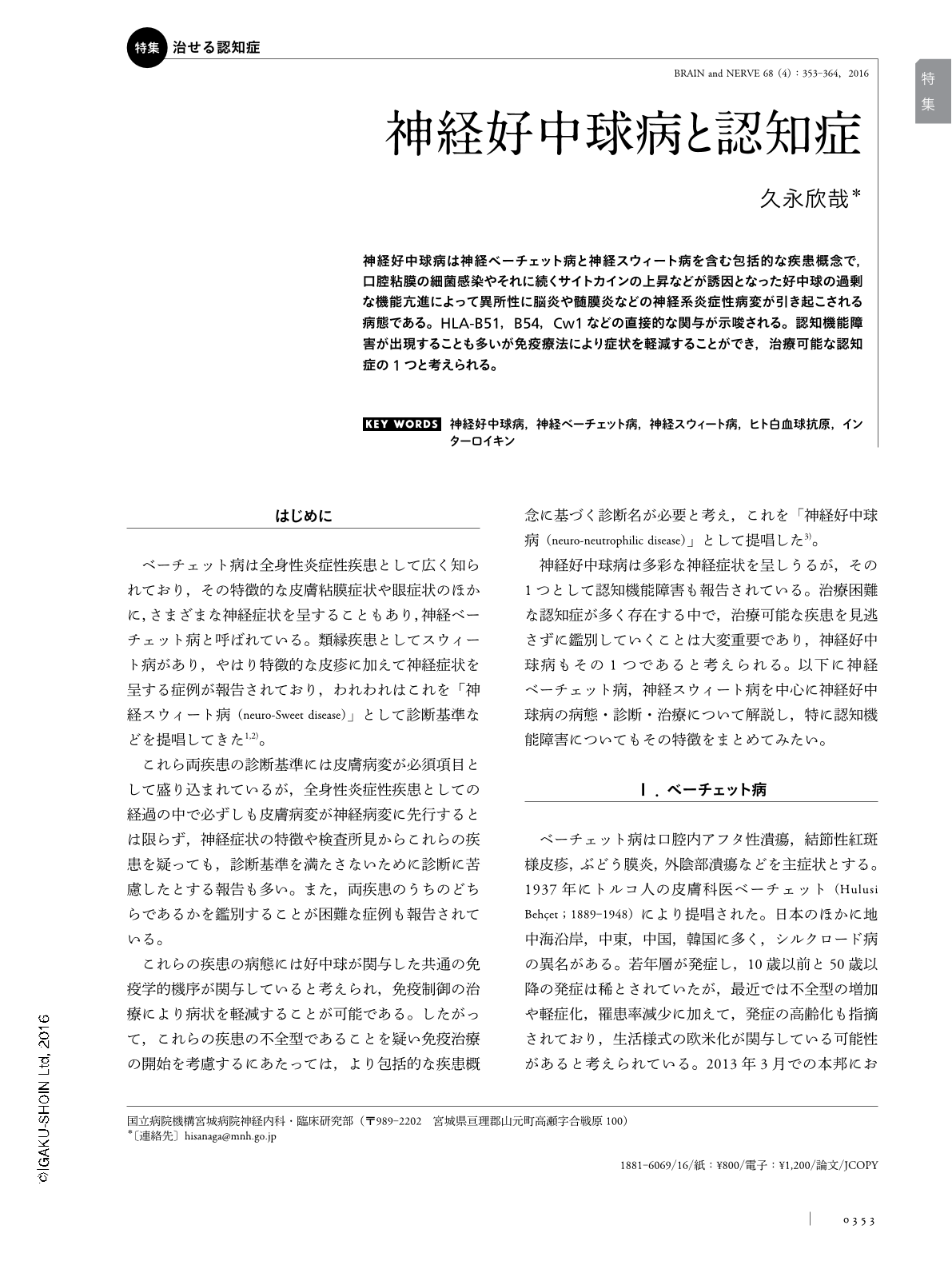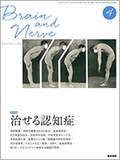Japanese
English
- 有料閲覧
- Abstract 文献概要
- 1ページ目 Look Inside
- 参考文献 Reference
神経好中球病は神経ベーチェット病と神経スウィート病を含む包括的な疾患概念で,口腔粘膜の細菌感染やそれに続くサイトカインの上昇などが誘因となった好中球の過剰な機能亢進によって異所性に脳炎や髄膜炎などの神経系炎症性病変が引き起こされる病態である。HLA-B51,B54,Cw1などの直接的な関与が示唆される。認知機能障害が出現することも多いが免疫療法により症状を軽減することができ,治療可能な認知症の1つと考えられる。
Abstract
Neuro-neutrophilic diseases are multisystem inflammatory disorders that include neuro-Behçet and neuro-Sweet disease. These disorders ectopically damage the nervous system due to the abnormal chemotaxis of neutrophils. The neutrophils' chemotaxis is induced by oral muco-cutaneous bacterial infections and the dysregulation of cytokines, including interleukins. The frequencies of human leukocyte antigen (HLA)-B51 in neuro-Behçet disease and HLA-B54 as well as Cw1 in neuro-Sweet disease significantly higher than the levels present in Japanese normal controls. Notably, their frequencies are also higher in patients exhibiting neurological complications than in patients without neurological complications. These HLA types are considered risk factors that are directly related to the etiology of these diseases. Prednisolone and colchicine, which suppress neutrophil activation, are used to treat the acute phase of both diseases. Alternatively, dapsone is prescribed to prednisolone-dependent recurrent cases of neuro-Sweet disease. Dementia is a neurological symptom of these disorders, especially in the chronic progressive subtype of neuro-Behçet disease. Other immunosuppressant drugs, including methotrexate and infliximab, are administered to patients with the chronic progressive type of neuro-Behçet disease. Neuro-neutrophilic diseases are a form of dementia considered treatable.

Copyright © 2016, Igaku-Shoin Ltd. All rights reserved.


